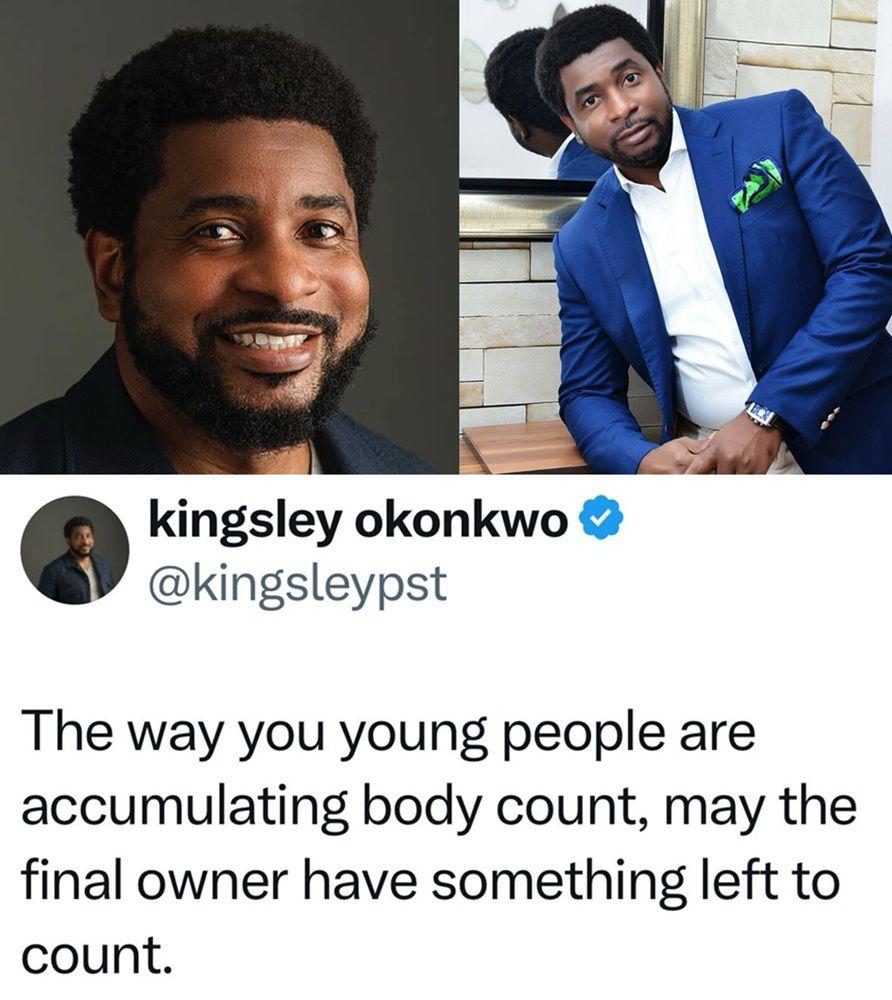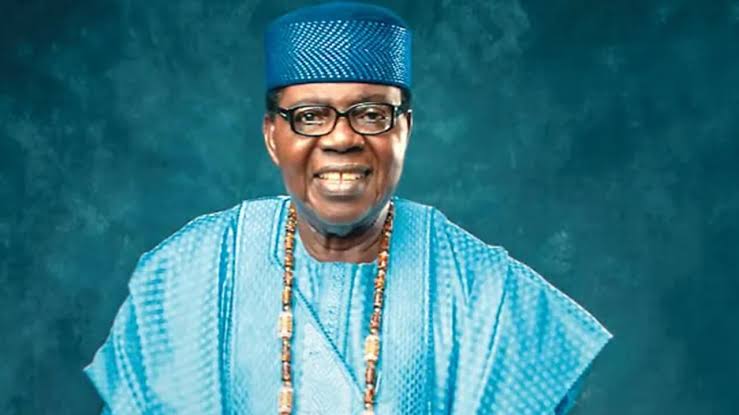
Pastor Kingsley Okonkwo Sparks Debate with Viral Body Count Statement

Popular Nigerian clergyman and relationship coach, Pastor Kingsley Okonkwo, has stirred a wave of online reactions following a provocative tweet that has quickly gone viral. In a post made on his official X (formerly Twitter) account, Pastor Okonkwo wrote: “The way you young people are accumulating body count, may the final owner have something left to count.”
The statement, though short, has ignited widespread conversations across social media platforms, touching on themes of sexual purity, societal values, modern dating culture, and the role of the church in addressing youth behavior.
Pastor Kingsley Okonkwo, known for his bold takes on relationship matters and premarital counseling, has once again positioned himself at the center of a cultural and moral discussion that cuts across religious lines.
His comment appears to be a direct commentary on the increasing casual approach to sexual relationships among young people, a subject he frequently addresses in his sermons and online content. While the language of the tweet might appear humorous to some, its underlying message has resonated deeply, sparking both support and criticism.
In a generation heavily influenced by pop culture, media liberalization, and the globalization of lifestyle trends, the topic of sexual freedom and body count—referring to the number of sexual partners a person has had—has become a hotbed of opinion.
Pastor Okonkwo’s tweet seems to question the trajectory of this openness, urging young people to consider the long-term consequences of their choices, especially in the context of marriage and emotional bonding. His use of the phrase “may the final owner have something left to count” appears to suggest concern over the emotional and psychological effects of having multiple sexual partners before settling down.
Reactions to the tweet have been mixed. Many supporters praised the clergyman for speaking truth in a generation that, they argue, is gradually losing moral direction. One commenter wrote, “Pastor Kingsley always speaks with wisdom. People might not like it, but it’s the truth. We need to start thinking about our future and what kind of baggage we’re carrying into relationships.” Another echoed similar sentiments, saying, “Sexual discipline is important. It’s not just about religion; it’s about your health, self-respect, and future.”
However, not everyone agrees with the tone or message of the tweet. Some critics accused Pastor Okonkwo of being judgmental and insensitive to the realities of modern dating and the personal journeys of individuals. “Not everyone has had the privilege of a moral upbringing or stable environment,” a user commented. “You can’t shame people for their past. People grow, people change.” Others pointed out the gendered undertones in discussions about body count, where women are often more scrutinized than men. “Why is it that whenever we talk about body count, it’s always directed at women? What about the men?” another user asked.
This divide in public opinion reflects a broader societal struggle between traditional moral frameworks and evolving personal values. In Nigeria, a country with strong religious roots—both Christian and Islamic—sexual morality remains a sensitive issue. The influence of Western media and the global digital space has introduced new dynamics, challenging conservative teachings and ushering in more liberal perspectives. It is within this tension that voices like Pastor Okonkwo’s emerge, aiming to call young people back to what he perceives as a more grounded and godly path.
The church, historically a moral compass in many societies, often finds itself trying to navigate the complex terrains of modern culture. Pastor Okonkwo, through his ministry and teachings, has consistently advocated for sexual purity before marriage, open communication in relationships, and intentional courtship practices. His recent tweet is not an isolated comment but part of a larger message he has preached for years—especially targeted at the youth who form a significant part of his audience.
Nevertheless, the conversation sparked by his statement is proving valuable. It has brought to the surface questions many often shy away from: Does body count matter in relationships? Can someone’s sexual past affect their future in marriage? Should the church continue to weigh in on matters of personal choices in the digital age? And perhaps more importantly, how do young people balance personal freedom with societal expectations?
Some commentators have urged for a more compassionate approach when discussing such topics. “Instead of shaming people, how about we educate and guide them with love?” one user posted. Others have pointed out the need for context in addressing sexual history, advocating for a more nuanced perspective that acknowledges healing, growth, and personal transformation.
Despite the criticism, Pastor Okonkwo has yet to issue a follow-up statement or clarification, a move some see as a testament to his confidence in his stance. Those familiar with his teachings know that he often challenges societal norms with a blend of scriptural backing and contemporary examples, which might explain the boldness of his comment.
As the dust settles, what remains clear is that the message has resonated. Whether seen as a call to moral responsibility or a controversial judgment, it has sparked reflection. It reminds society that while the world continues to evolve in its understanding of personal freedoms, conversations around values, responsibility, and future consequences remain essential.
In a world where everything is shared, liked, and commented on instantly, Pastor Kingsley Okonkwo’s tweet is more than just a viral moment—it’s a mirror to a generation grappling with identity, relationships, and the meaning of value. Whether one agrees or not, it has opened the door for a much-needed dialogue, one that forces young people to stop, think, and perhaps, reconsider the legacy they are building—body count included.


